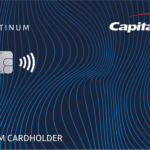Improving your credit score can be essential whether it’s to rectify past financial missteps or apply for mortgage or loan applications, but how? While there is no immediate solution available to improve it quickly, it is possible to increase it without resorting to costly services provided by credit repair companies.
Credit repair companies don’t do anything that you couldn’t do yourself for free and, while some agencies use questionable tactics, there are numerous ethical and legal ways of improving your credit.
As the first step in improving your credit, reviewing your reports is an essential first step in rebuilding it. Experian, Equifax and TransUnion each offer free reports once every 12 months, which should give you ample opportunity to read over them and highlight any information that appears inaccurate or incomplete as well as accounts that have become delinquent, collections accounts or charged off.
Contact your creditors directly if there’s incorrect information on your credit report that needs disputing, but remember to be patient; while disputing errors can help boost your score, credit bureaus typically take seven-10 days to process and update reports after you file disputes with them. It is also best to space out disputes over time as too many requests filed too quickly may appear frivolous.
After disputing inaccurate information, the best way to improve your credit is to pay down debt and start building positive credit history. Credit cards are particularly helpful for this because they report your payment activity directly to credit bureaus – as well as being widely available, having no annual fee, and not forcing people into debt. Plus they can act as an emergency fund tool.
Those having trouble repaying debt should seek assistance from a credit counseling agency. Credit counselors can provide budgeting advice, financial education services and negotiate repayment plans or lower interest rates and fees with creditors – although please be aware that these agencies don’t have the power to remove accurate negative information from your report.
Credit repair may seem like a long-term process, but you can begin seeing results within months. Your score depends on how quickly you pay off debts and close open accounts; in addition, how long it’s been since any missed payments occurred as well as recent payment history has an effect.
Note that it can take up to 30 years for past delinquencies to fully disappear from your credit report, making it harder to get approved for new credit even with an otherwise clean slate.




